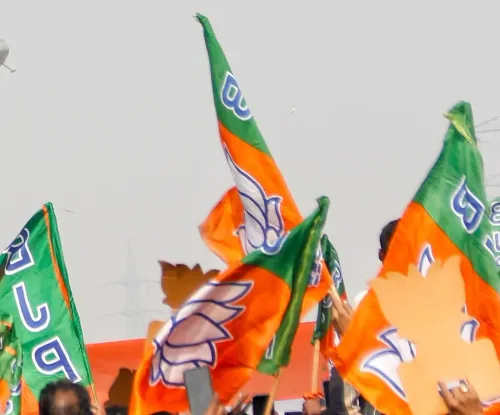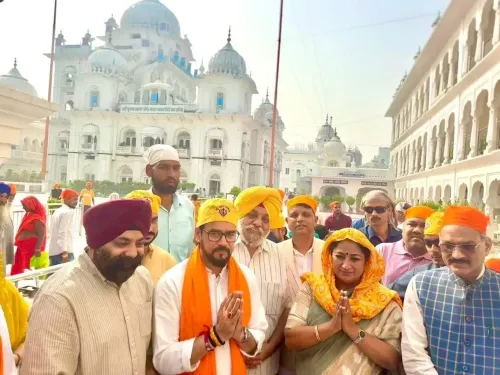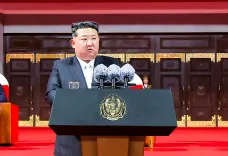Did Nehru Fear Ambedkar's Rising Popularity?

Synopsis
Key Takeaways
- Nehru's fear of Ambedkar's growing popularity.
- Obstruction of Ambedkar's electoral campaigns.
- Ambedkar's contributions to the Constitution.
- Recognition of social discrimination challenges.
- Importance of Ambedkar's legacy in contemporary society.
Bhopal, April 29 (NationPress) Madhya Pradesh Chief Minister Mohan Yadav criticized Jawaharlal Nehru, the first Prime Minister of India, for his interactions with Bhimrao Ambedkar, the architect of the Constitution. Yadav suggested that Nehru was apprehensive about Ambedkar's growing popularity.
“Nehru feared Ambedkar’s popularity. He actively obstructed Ambedkar’s electoral ventures. Nehru consistently tried to postpone Ambedkar’s nomination as President of the Constituent Assembly, even though there was significant consensus on his qualifications. It was only after Dr. Rajendra Prasad intervened, asserting the absence of a better candidate, that Nehru begrudgingly assigned Ambedkar the role,” the Chief Minister stated during the ‘Dr Bhimrao Ambedkar Samman Samaroh’ event at Ravindra Natya Grih in Indore, organized by the BJP.
Yadav further accused Nehru of harboring resentment towards Ambedkar, even posthumously, asserting that when Ambedkar, affectionately referred to as Baba Saheb, passed away in Delhi, he was denied permission for his last rites in the city. His remains were sent to Mumbai at his wife’s expense.
The ‘Dr Bhimrao Ambedkar Samman Samaroh’ was also attended by former Rajasthan Chief Minister Vasundhara Raje and other BJP dignitaries.
Raje reflected on Baba Saheb Ambedkar’s resolute opposition to social discrimination and his pivotal temple entry movement, which contested deep-rooted inequalities. “God is for everyone, not confined to a single caste or class,” she affirmed.
In discussing political struggles, Raje disclosed that during the 1952 and 1954 elections, the Congress party made persistent efforts to thwart Ambedkar. “Nevertheless, he remained steadfast, bolstered by his principles and dedication to truth. His resignation from the Cabinet highlighted his disillusionment with the neglect of the underprivileged within the system,” she asserted.
She remarked that Ambedkar was never granted the respect he warranted by the Congress, which marginalized him as merely a leader of a particular community instead of acknowledging his national contributions.
She described the Constitution, crafted under Ambedkar’s guidance, as transcending a mere legal framework. “It embodies a profound philosophy of life that delineates the rights and responsibilities of every citizen,” she expressed.
Raje further commended Ambedkar’s integrity, emphasizing that he never aspired for positions of power but remained devoted to truth and justice. She reiterated that his legacy surpasses divisions, representing the ideals of equality and advancement for all.









